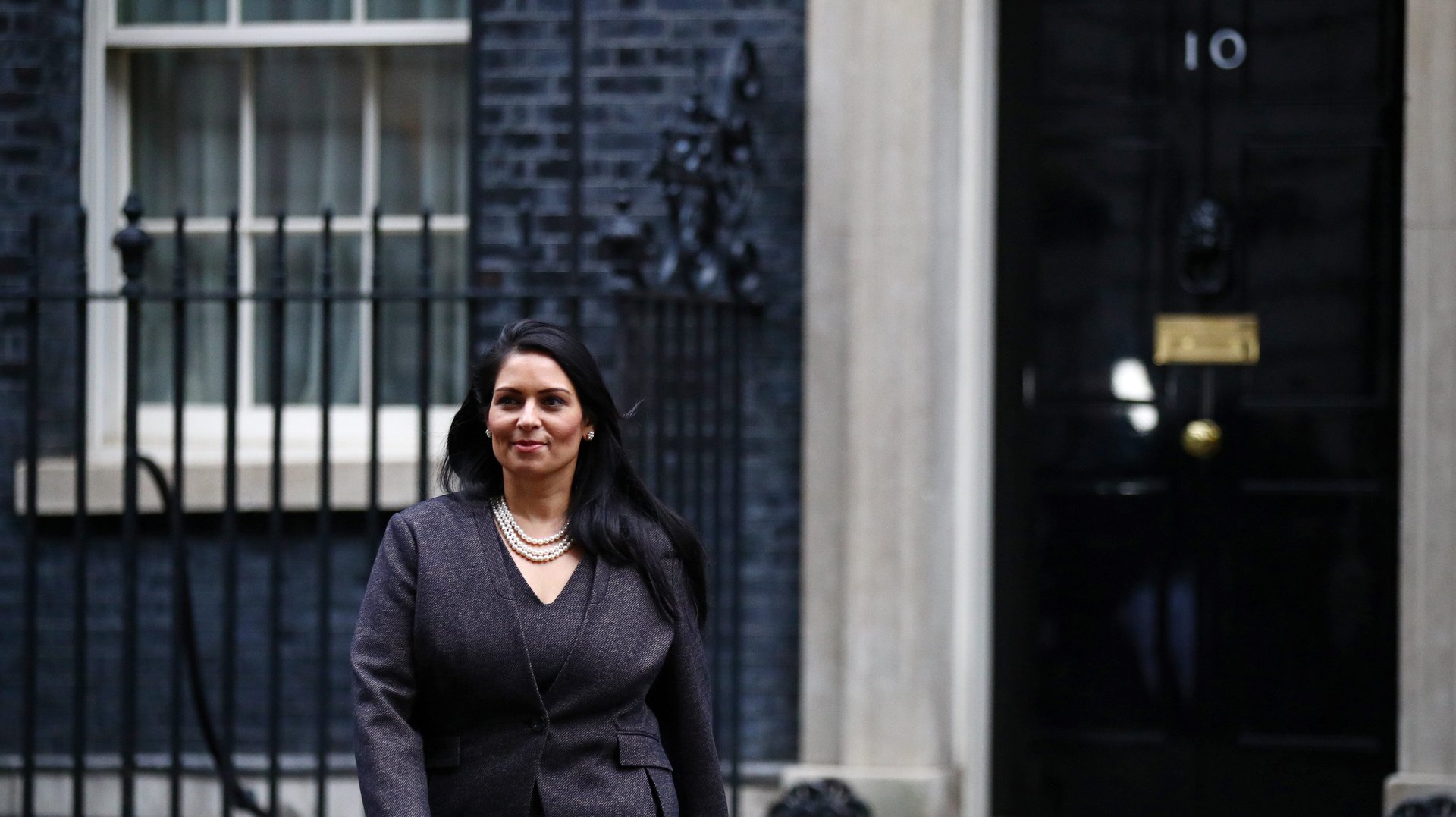“Absolute disaster”: The UK’s social care sector reacts to the post-Brexit immigration system
Representatives of Britain’s social care sector—an industry made up of professionals who look after those who cannot look after themselves, such as the disabled or the elderly—reacted badly today (Feb. 19) to the British government’s new post-Brexit immigration plan. “An absolute disaster,” is one description. “A difficult pill to swallow,” another.


Representatives of Britain’s social care sector—an industry made up of professionals who look after those who cannot look after themselves, such as the disabled or the elderly—reacted badly today (Feb. 19) to the British government’s new post-Brexit immigration plan. “An absolute disaster,” is one description. “A difficult pill to swallow,” another.
Under the plan, workers hoping to immigrate to the UK after Dec. 31, 2020—the date at which the “transitional period” of Brexit ends—will be assigned points based on their specific skills, professional and academic qualifications, and job prospects in the UK. Work visas will only be given to those who meet the first three requirements—meaning they speak English and have a job offer in the UK that matches their skill level—and have at least 70 points overall.
Home secretary Priti Patel announced the new system, saying it would “open up the UK to the brightest and the best from around the world.” The system reflects many of the grievances that propelled the Brexit referendum and helped elect Boris Johnson to government: It favors high-skilled migrants over low-skilled ones and considers EU and non-EU citizens equally.
While EU nationals who currently live and work in the UK can stay in the country after Dec. 31, experts say the new rules would make it impossible for most low-skilled EU migrants to come to the UK after that date. The government estimates that “70% of the existing EU workforce would not meet the requirements of the skilled worker route.”
Britain’s social care crisis
This is a problem for Britain’s social care sector, which overwhelmingly relies on low-skilled foreign workers to plug existing gaps and meet the rising demand from an aging population. Sadiq Khan, the mayor of London, has already expressed his concern over these vital services:
“We were really anxious that there would be some kind of provision to enable migration for that sector to continue,” said Mark Dayan, who leads the program on Brexit at the Nuffield Trust, a research group dedicated to healthcare policy in the UK. “Unfortunately, we haven’t seen that at all.”
The social care sector is severely under-funded in the UK, and successive Labour and Conservative governments have promised and failed to fix it. Boris Johnson has also promised to “fix the crisis in social care once and for all.” Meanwhile, under-staffing and under-budgeting in social care have affected the National Health Service (NHS), Britain’s sprawling public healthcare system, as vulnerable people who are otherwise well take up NHS beds because there is no one to care for them at home.
The new immigration plan makes provisions for recruiting “shortage occupations,” like nurses and doctors, into the NHS. It also has a separate track for top scientists and seasonal agricultural workers.
But, as Suzie Bailey, director of leadership and organizational development at The King’s Fund, a health-related think tank, points out in a statement, “the NHS workforce is only half the story; with more than 120,000 vacancies in social care, many people are struggling to access the support they need to live independently and avoid long stays in hospital.”
Bailey argues that, in the absence of workers from the EU to fill gaps in the UK, “the social care sector would need to significantly improve care worker pay and conditions to attract more home-grown staff.” But, as Dayan points out, “Nobody should underestimate how difficult it will be to put those resources in, because you’re effectively giving more money to a sector that needs a lot more money anyways.”
It is not clear if there is any more money available, as the government has already committed to spending £33.9 billion ($44 billion) per year on the NHS by 2024 and investing £2.8 billion to build or upgrade NHS hospitals.
The world is aging and the prevalence of age-related diseases (pdf) like dementia continues to climb. Experts have made it clear that social care is a necessary part of the solution to this global challenge. But with its latest immigration plan, it’s not clear that the UK has understood the message.